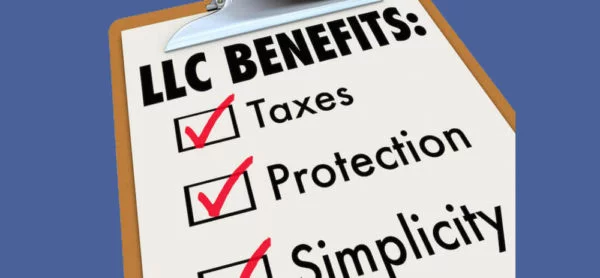Are you protecting your hard-earned assets from lawsuits? Most people aren’t, and once a lawsuit hits, your options shrink fast. While it’s best to plan ahead, there are still powerful ways to protect yourself even after being sued—divorce cases being the key exception.
Luckily, you don’t have to leave yourself vulnerable because there are several ways to protect your assets from lawsuits. In this article, we’ll explore fiveways to protect your assets from lawsuits, detailing key legal tools that can help you keep what is yours.
- Land Trusts
- LLCs
- Corporations
- Equity Stripping
- Offshore Asset Protection Trusts
- Why You Need to Protect Your Assets from Lawsuits
1. Land Trusts
A land trust provides privacy of ownership for real estate. While not purely an asset protection tool, it does hide your ownership, reducing the likelihood that a lawyer will take a case against you on a contingency fee basis.
A land trust is an agreement among three parties:
1. A “trustee,” who agrees to hold title to a property
2. One or more “beneficiaries,” who receive the benefits of the trust
3. A “trustor” (AKA “settlor” or “grantor) is the creator of the trust and is usually the original titleholder to the property
When a professional drafts a land trust, the same people generally hold the beneficiary and trustor positions. Under this arrangement, beneficiaries can remain in control of the property and receive all income from the trust. The land trust agreement establishes how much influence the beneficiary gives the trustee. The trustee often has no other function than to act as the beneficiary directs them. And because land trusts are usually revocable, the beneficiary/trustor can replace an uncooperative trustee, change the trust, and even terminate the trust.
Before you place all of your real estate into a land trust, keep in mind that one must draft the trust and the deed properly. Improperly drafted documents can hinder the tax benefits associated with home ownership, as well as the homestead protection. So, work with a professional. Land trusts work for both primary residences and rental properties.
Why Privacy of Ownership Can Keep Assets Safe
Establishing privacy is a key goal of any good asset protection plan. By obscuring your ownership of assets, tools like land trusts and title-holding trusts make it more difficult for potential creditors to determine your net worth.
When a lawyer doesn’t have a clear picture of what you own, the prospect of suing you becomes less enticing. Many of the lawyers who run asset searches to start lawsuits work on a contingency fee basis. This means that the lawyer only gets paid when they win a case. So, if you can hide your ownership of valuable assets, a lawyer won’t know that you’re a guaranteed payday, and will likely look for another person to sue.
2. LLCs
Limited liability companies (LLCs) can prevent business lawsuits from turning into personal lawsuits against their members. LLCs draw very clear lines between member/owner assets and company assets. When an LLC structure is in place and the business can’t pay a creditor’s judgment, creditors are not allowed to come after the assets of individual LLC members. The most you can lose as an LLC owner or member is any money you used to start and fund the LLC.
For the protection of the LLC to stand strong, you must use it properly. In essence, you cannot use LLC accounts or assets for your convenience. For example, if you have a car that belongs to the LLC, you cannot use it as your personal vehicle. When you blur the line between what you own and what the LLC owns, a judge can decide that your personal assets are up for grabs, too.
Finally, the protections offered by an LLC don’t extend to every situation. A judge can hold LLC owners personally liable for directly injuring someone. Likewise, if an LLC member personally guarantees a bank loan or business debt on which the LLC defaults, the wronged party can come after an LLC member. Finally, LLC owners are also personally responsible if they fail to deposit taxes withheld from employees’ wages or engage in other illegal activities.
There are also tax advantages to an LLC. By default, it enjoys sole proprietorship or disregarded entity taxation if it has one owner and partnership taxation if it has two or more members. How your LLC is taxed has no bearing on your lawsuit protection, but it is a useful benefit if you need some flexibility on your taxes.

3. Corporations
Owners typically use corporations instead of LLCs to operate active businesses. While the primary benefits of operating as a corporation usually revolve around taxes and marketing, a corporate structure can also protect your personal assets. For example, if one of your employees does something that triggers a lawsuit against the company, you can usually contain the lawsuit inside the corporation. This can prevent your opponent from taking your assets in a business lawsuit. It is also easier to transfer ownership in a corporation compared to a sole proprietorship or a partnership.
Even if you are technically an employee and/or a shareholder of your own corporation, litigators may still sue you personally for actions you perform through your corporation. As an example, if you create an ad campaign for your corporation that criticizes a competitor who in turn decides to sue, only the company faces any liability. However, if you were operating as a freelancer, the offended company could sue you personally.
4. Equity Stripping
Equity stripping is a process of reducing the overall equity in a property to keep it away from creditors. Experts consider it one of the simplest asset protection methods. It is also one of the most successful ways to protect your assets from lawsuits.
Like land trusts, equity stripping works by following the assumption that litigators are generally not interested in people without assets. However, instead of simply moving that property from one party to another, which is how land trusts operate, equity stripping completely removes the value of the property in question. Asset protection professionals accomplish this elimination of value by giving another party a claim against a property, such as a mortgage. By doing so, owners are able to retain control over the cash flows and use of the asset while making it unattractive to creditors.
A common form of equity stripping is home equity lines of credit (HELOC). A HELOC gives the lender a lien against the equity of the property. The property serves as collateral for the loan. HELOCs make it difficult and costly for creditors to get at the actual equity in a property, so they often refrain from starting any legal proceedings. Placing a HELOC on a property also provides a source of funds you can use for emergencies or any other financial obligations. These lines of credit are easy and inexpensive to set up, and don’t require you to assume the financial risk of interest and principal repayments. With a line of credit in place, creditors cannot tell how much you actually owe to the bank. If you want to, you can even max out your HELOC and send the funds to an offshore trust, which we’ll discuss next.

5. Offshore Asset Protection Trusts
Experts consider offshore asset protection trusts one of the strongest ways to keep your assets safe from lawsuits. They are the golden standard of asset protection because no judge in your country can compel a foreign trustee to release funds and assets to a creditor. Even if a creditor is determined to pursue assets held in an offshore trust, they have to win an expensive legal battle in the jurisdiction where your trust is located. If that weren’t enough of a deterrent, the best offshore trust jurisdictions, such as Nevis and the Cook Islands, have trust-friendly laws on the books. These laws make it virtually impossible for a creditor to prove fraudulent conveyance, which is typically the only way they could ever claim any of your trust-held assets.

4. Equity Stripping
Equity stripping is a process of reducing the overall equity in a property in order to keep it away from creditors. Experts consider it one of the simplest asset protection methods. It is also one of the most successful ways to protect your assets from lawsuits. Remember how litigators are generally not interested in people without assets? By giving another party a claim against a property, owners are able to retain control over the cash flows and use of the asset. At the same time they are making the property unattractive to creditors attempting to enforce some type of legal judgment. A common form of equity stripping is home equity lines of credit (HELOC).
A HELOC gives the lender a lien against the equity of the property. The property serves as collateral for the loan. HELOCs make it difficult as well as costly for creditors to get at the actual equity in a property, so they often deter from starting any legal proceedings. Placing a HELOC on a property also provides a source of funds you can use for emergencies or any other financial obligations. It’s easy and inexpensive to set up, and will not add financial risk such as required interest and principal repayments. A HELOC offers an effective strategy to discourage a party from going after your property. With a line of credit in place, creditors cannot tell how much you actually owe to the bank. If you want to, you can max out your HELOC and send the funds to an offshore trust, which we discuss next.

5. Offshore Asset Protection Trust
Experts consider the offshore asset protection one of the strongest ways to protect your assets from lawsuits. It offers the ultimate financial security as no judge in your country can compel a foreign trustee to release funds and assets to a creditor. Even if a creditor is determined to pursue assets held in an offshore trust, the legal battle has to first be won locally and then within the offshore trust jurisdiction. This is very expensive, and will make it highly unlikely for a creditor to pursue offshore assets. We have found the offshore trust in the Cook Islands or Nevis virtually bulletproof.
Why You Need to Protect Your Assets from Lawsuits
The world, and especially the United States, grows more litigious with each passing year. As the number of civil cases filed increases, so too does your risk of being on the receiving end of one. To make matters worse, countless courts have adopted a creditor-friendly stance, making it more likely that your money will end up in a creditor’s hands.
Given the ever-increasing likelihood that you’ll be sued, it’s important to have some amount of asset protection in place. After all, you can’t guarantee that you’ll win every lawsuit filed against you, so you need something that can defend you should you lose.
The asset protection strategies that we’ll discuss in this article are designed to do two things:
- Prevent lawsuits from being filed against you
- Protect your assets in case you lose a lawsuit
By hiring an asset protection professional to implement some or all of these strategies, you can rest assured knowing that your money is protected from divorce, creditors, lawsuits, and countless other threats.
Contact Asset Protection Planners to Defend Your Assets from Lawsuits
If you’re interested in gaining the peace of mind that only an asset protection strategy can provide, reach out to Asset Protection Planners. Our team of experts has set up countless land trusts, offshore trusts, and LLCs that effectively guard against creditors and other threats.
Don’t wait to get the protection you need. Contact us for a free consultation and start defending your assets from lawsuits!


